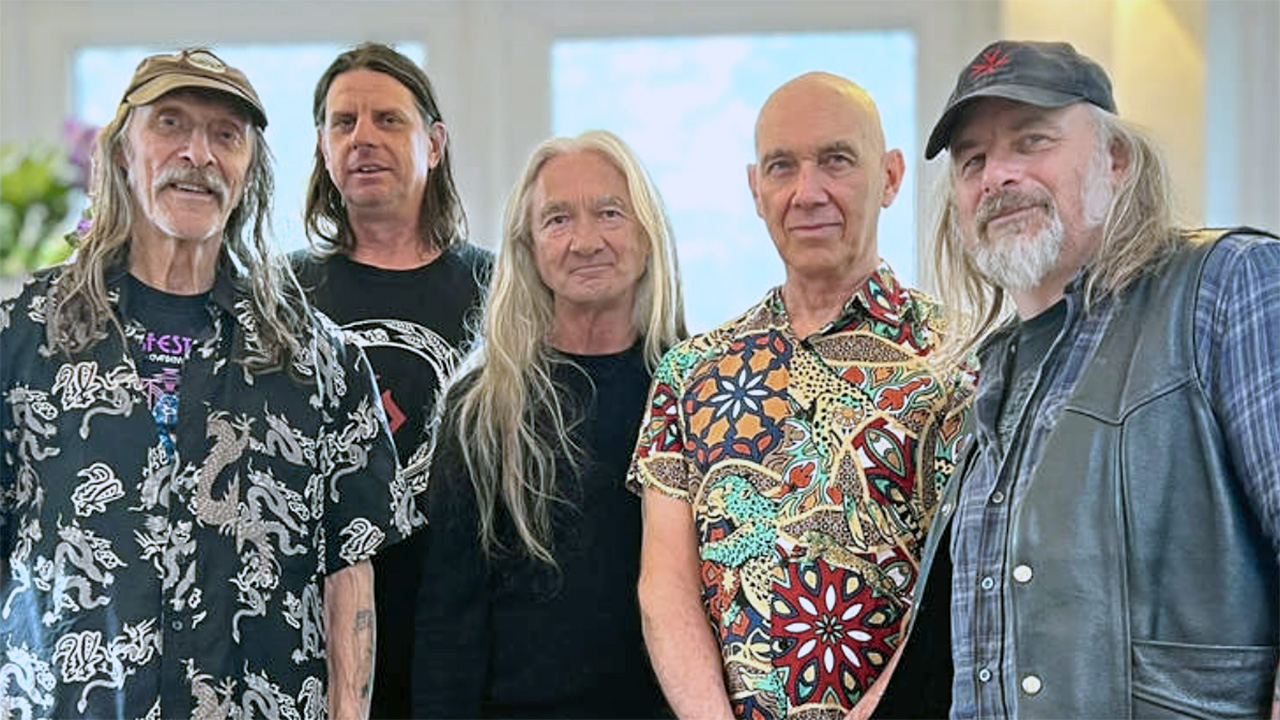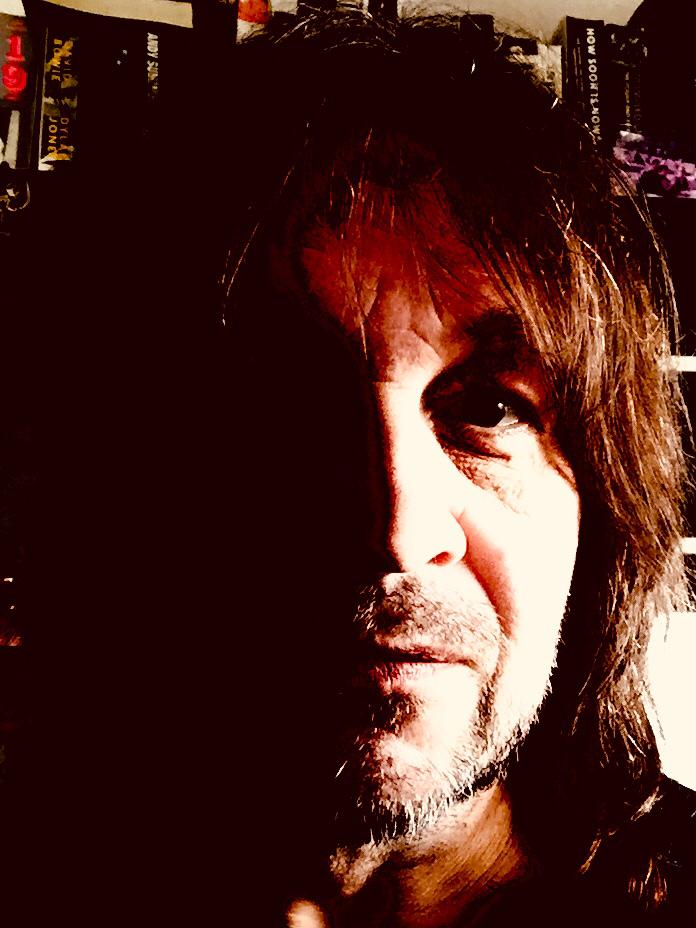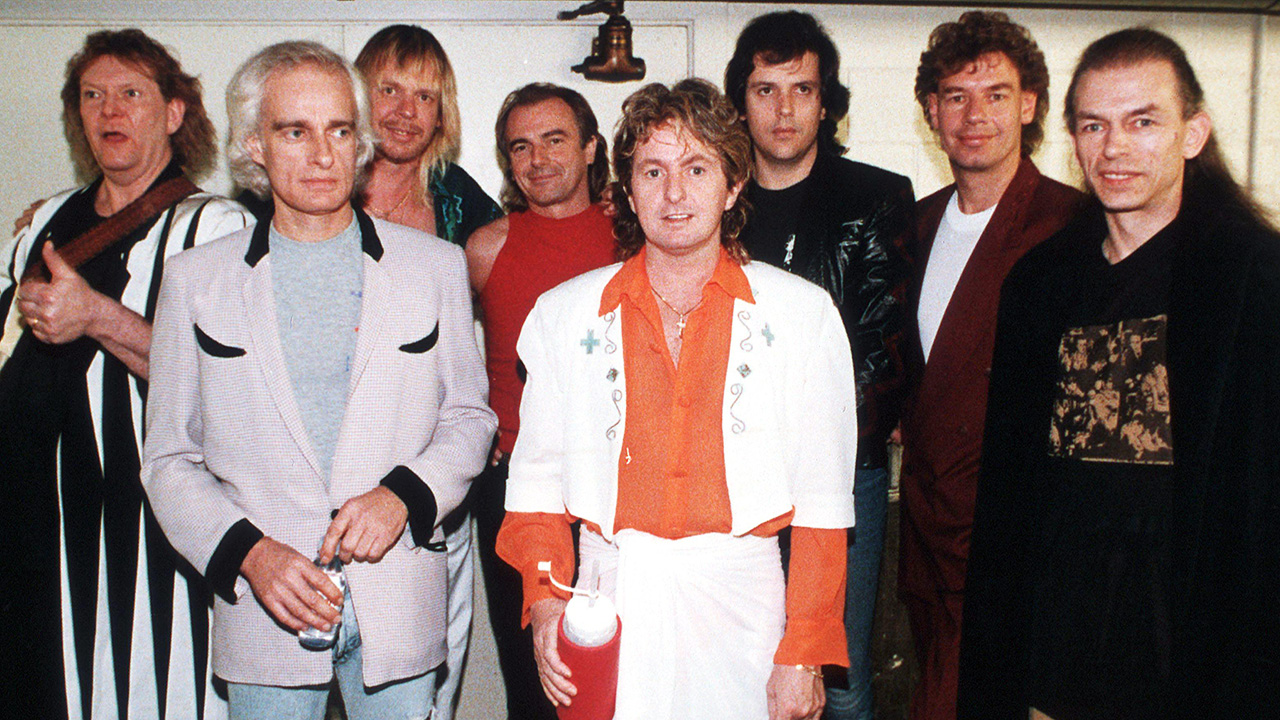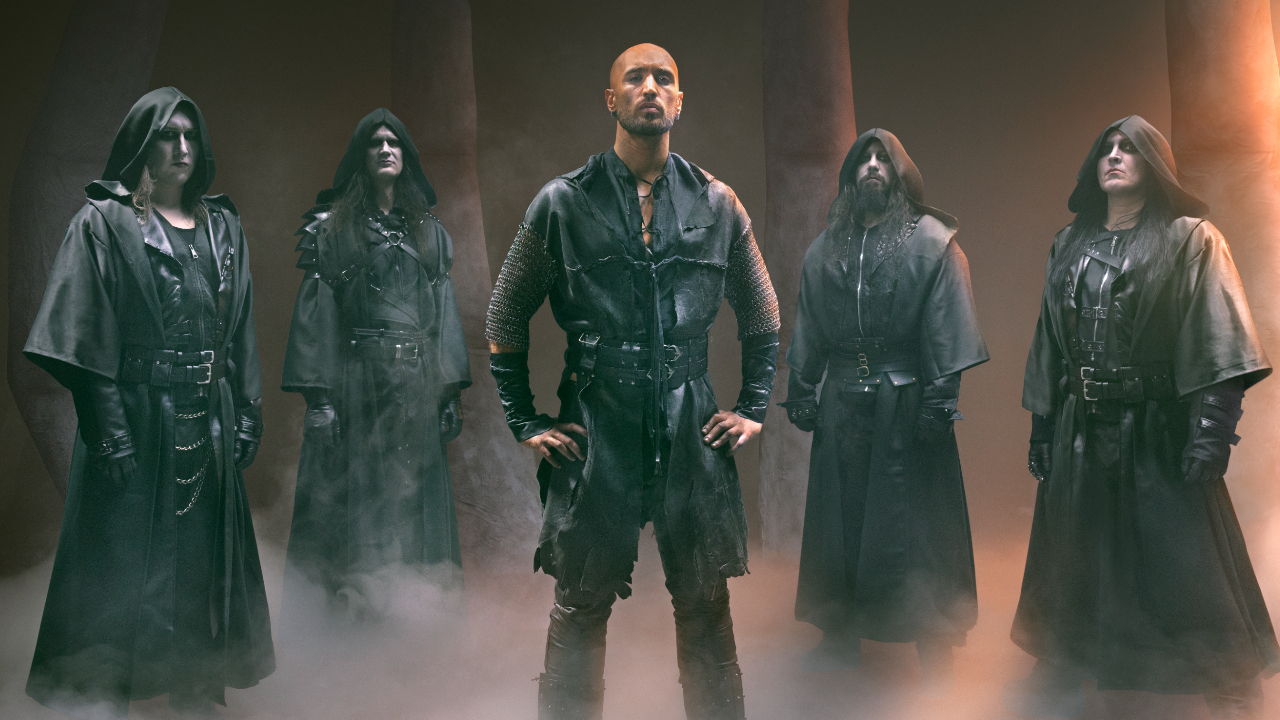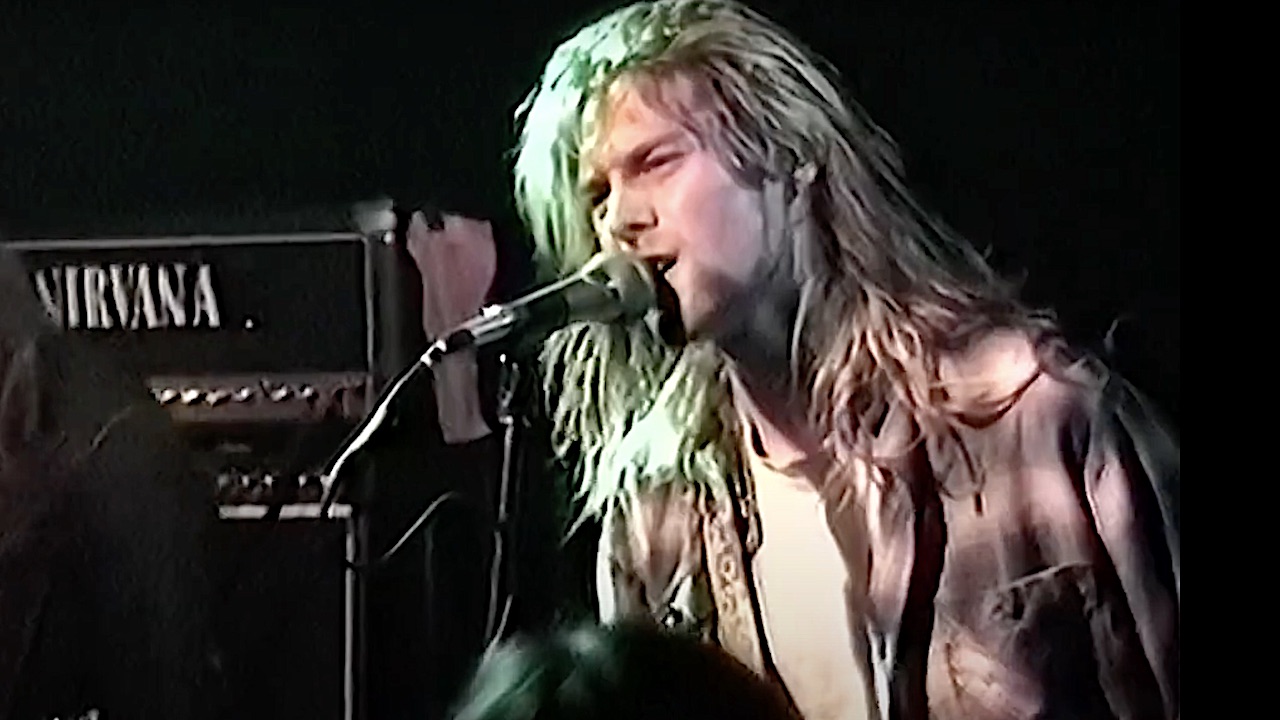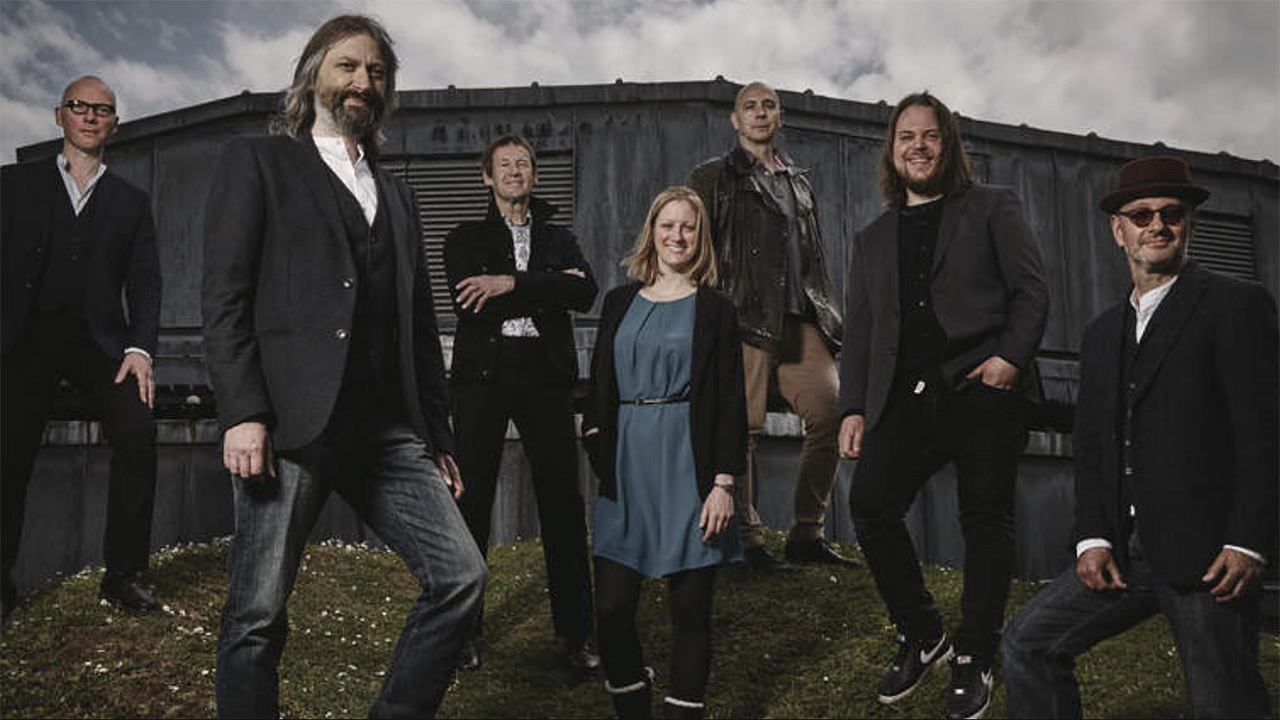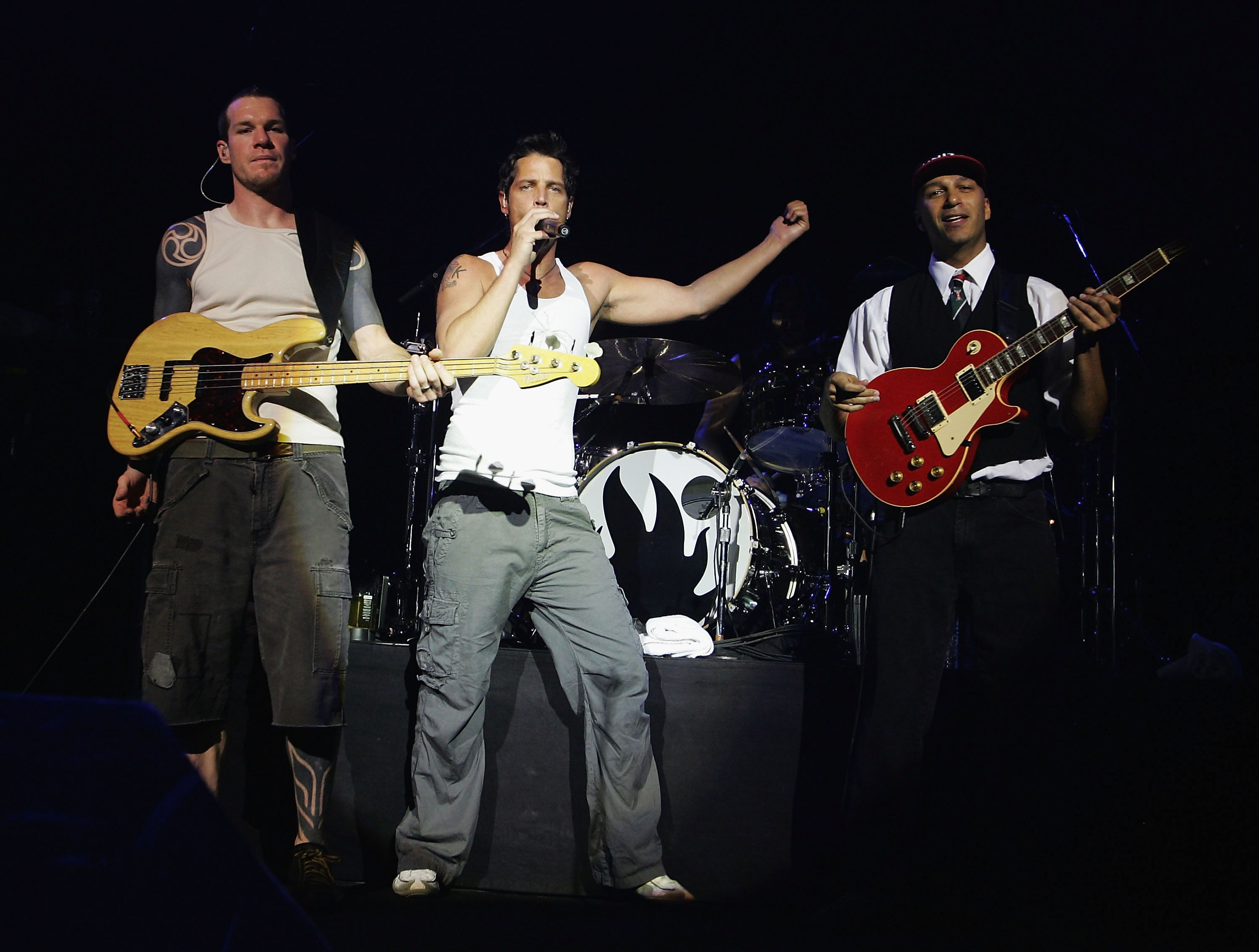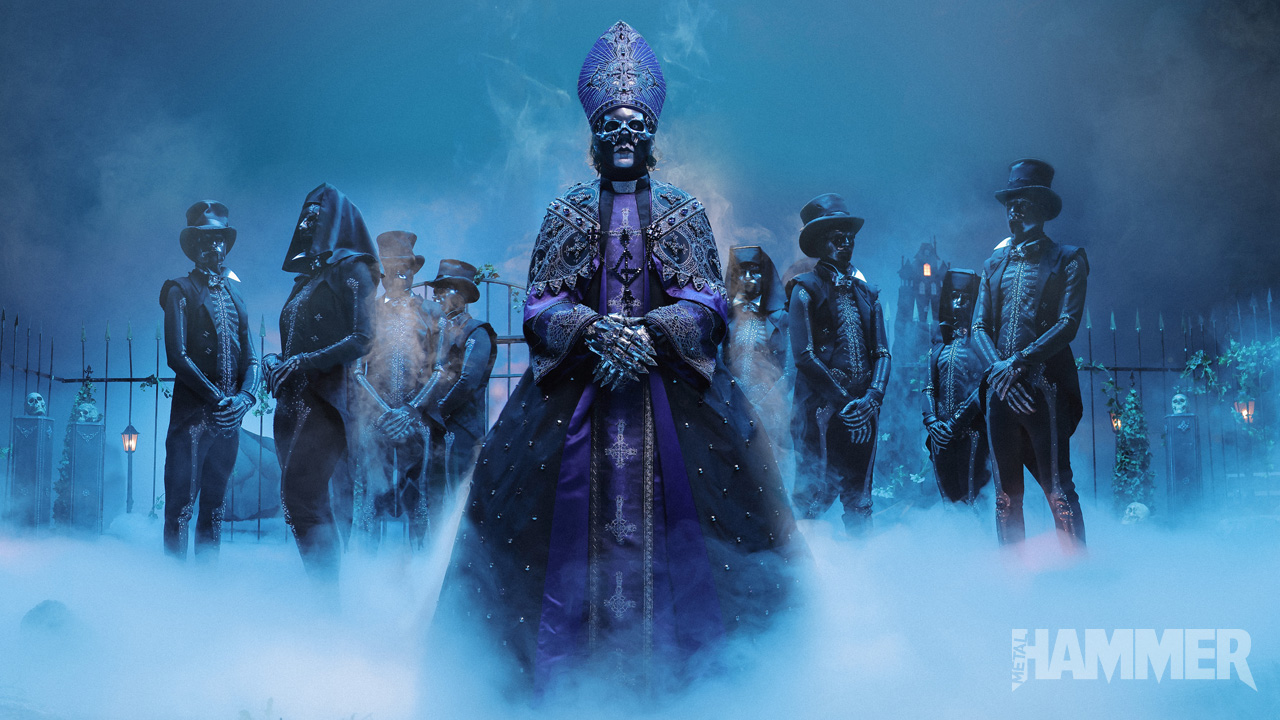Hawkwind released 35th studio album The Future Never Waits in April 2023. That year, leader Dave Brock told Prog why the LP explored human life backwards, share an experience with a locked computer that reinforced his thoughts on AI, and explained why he felt cautious about the rising availability of formerly illegal drugs
Dave Brock is in a very good mood. Unlike our previous encounter with Hawkwind’s founder and sole constant member, that found him bemoaning what passed for his 80th birthday during the pandemic, he’s back where he belongs and who he belongs with.
“We’re all here in the studio,” he says with no small amount of enthusiasm. And who can begrudge him that? The band’s two previous albums – 2020’s Carnivorous (released under Hawkwind Light Orchestra banner) and 2021’s Somnia –having been recorded remotely thanks to the pandemic.
Their 35th studio release, The Future Never Waits, finds Magnus Martin (guitars/vocals/keys), drummer Richard Chadwick, bassist Doug MacKinnon and multi- instrumentalist Tim ‘Thighpaulsandra’ Lewis reunited in the creative environs of Brock’s home studio on his Devonshire farm.
Being in a room together means we can make a song quite easily,” he enthuses. “We can come up with a riff, and from that riff we can get an idea, and then someone else gets an idea and then it comes together.”
He continues: “Sometimes we do 20 minutes on just one riff. Then we record it and everyone goes away. I might spend four or five days fiddling around doing things with it; then, when everybody comes back, it’ll be totally different, and there’s a lot of talking that goes on.”
So putting this album together was more of an organic process then? “Oh, we like organic!” laughs Brock uproariously. “We’re free range!”
In keeping with Hawkwind’s previous two studio releases, The Future Never Waits is a concept album. While Carnivorous and Somnia were inspired respectively by Covid and the intense dream states brought on by the lockdowns, this time around the band tackle the internal cycle of life in their own inimitable fashion.
Perversely, they start with the terminal conclusion of mortality before moving backwards, track by track, through life’s milestones to arrive at the miracle of birth. “It is an unusual concept,” concedes Brock. “It’s back to front.”
He says The Future Never Waits was inspired by the stresses and pressures of contemporary living that’s become common currency the world over. “It’s the state of mind people get in – Tthough your mind is not right you sort of lay in bed and think about all these things, and it’s quite easy to get tormented. So we utilise these topics that befall us, really.”
The 10 tracks feature Hawkwind in full flight. Be it extended and creamy workouts (I’m Learning To Live Today), the characteristic chugging rock of The End or hook-laden acoustic reflections underscored by their innate melodic sensibility, there’s no mistaking who’s at the helm. And with that comes a sense of comfort, as much for the band as it does for the listener. There’s a palpable sense of unity and the sharing of ideas as Hawkwind’s members spark off each other like live wires skimming water.
Curiously, and in keeping with the topsy-turvy nature of the album’s narrative, its conceit developed along with the music that took shape in the studio. Indeed, three of the four sides of the vinyl edition open with hefty instrumentals that variously delve into electronically powered space rock coloured by pulsing beeps and bleeps (The Future Never Waits), jazz- inflected explorations (They Are So Easily Distracted) and undulating psychedelia (USB1).
When LSD was brought to Britain, people would only take it if there was a guru to help if they freaked out… It was regarded as something special
“It wasn’t planned,” Brock explains. “We were going off on the jams that we do. Some of them lasted about 15 minutes before we finally reduced them to about eight or nine minutes. It all depends; sometimes we’ll record stuff and it’s all perfectly okay. Other times we cut things back to the bare essentials.”
In keeping with Hawkwind’s long-standing psychedelic credentials, the visionary author, philosopher and psychonaut Aldous Huxley is given the nod towards the beginning of the album (or the end of life). “That one’s about taking LSD, actually,” reveals Brock.
Huxley’s wife, Laura Archera, famously administered him with two doses of the psychedelic chemical on his deathbed in November 1963; their sampled voices run through the track. Given Huxley’s proselytising of the psychedelic experience, does Brock view him as a sort of prophet? “Yes,” he replies. “I suppose you would call him a brave explorer. You could say the same thing about Timothy Leary.”
It should be noted that there were clear demarcation lines between the two enthusiasts when it came to endorsing LSD. While Huxley favoured a selective approach as to who should take and benefit from it, Leary’s “turn on, tune in, drop out” attitude saw him lose his job at Harvard. His subsequent arrests for marijuana possession resulted in custodial sentences.
With this in mind, it does sound as if Brock is siding with Huxley when he says: “LSD would change huge amounts of people’s lives. And it was very creative. But as days and years went past, it all became corrupted as usual. Basically that’s what humans are like; they always end up being corrupted.”
The computer wanted a password; we’d forgotten it. This is us relying on machines – If they go wrong, none of us knows how to get our songs
Given the ongoing legalisation of pot and magic mushrooms across the world, it might come as a surprise to some that Brock expresses caution regarding their change in legal status. “Marijuana is used for many sorts of ailments, like backache,” he says. “Science has realised – which lots of doctors were saying in the 60s – these substances are helpful to relieve people who’ve got mental health problems and so on.”
It’s here he becomes wary of freeing the weed. With licensed growers in parts of the US setting up huge marijuana farms, there’s the fear that pot will become another product owned by big business, which in turn will lead to financial corruption.
“You know what humans are like,” he says with a sigh. “They always have to over-indulge. When LSD was first brought over to Britain, people would only take it if there was someone there like a guru to help if they freaked out – there’d be someone who would talk them down. It was regarded as something special, you know? And then there were parties with people getting pissed and taking LSD, and mixing speed with LSD and so on. And it became so corrupted.”
This talk leads to musings about artificial intelligence. If recent news reports concerning the development of AI are to be believed, not only are writers, authors and poets are under threat from machinery that can ape their styles and idiosyncrasies, but also musicians. Is this another pointer to dystopia?
“No, it’s cheating!” Brock retorts. “People have brains; they should start using them instead of becoming like the machines that they’re trying to play.”
You could write 20 tracks over the course of the year and hopefully three will be catchy. That’s the way we look at things
For him there are more prosaic concerns when it comes to technology. “We couldn’t get into our computer,” he says. “It wanted a password and we’d forgotten it, and we could not get anything off the fucking thing! In the end we had to send it to an expert to sort it for us. I mean, this is us relying on these machines. If they go wrong, none of us knows how to get all of our songs and stuff.”
Nevertheless, Brock is confident of Hawkwind’s continued survival if the metaphorical plug gets pulled. “We’d be alright, because we can play our instruments still!” he chuckles. “And we can get a generator. All you need is diesel or some petrol. Or I could have someone on a bicycle pedalling like mad. Or a lot of people pedalling – that’s the answer!”
Recently, former Hawkwind sax player and early co-songwriter Nik Turner passed away. Did his passing give Brock cause to reflect on the past? “We hadn’t seen each other for about 25 years,” he says. “I really can’t remember the last time I saw him.” He pauses before adding, “It’s not worth talking about, really.”
He’s more concerned with losing those from the friendships he’s maintained: “When you get older in life, lots of your friends die off; it’s quite sad. You cross various people’s names off with their telephone numbers. And that’s life.”
But Brock and, by extension, Hawkwind, are about looking forward, not back.“We’re constantly playing,” he says. “I mean, we’re actually working on another album.” Really? “Yeah, we do a lot of tracks. Obviously, you get rid of the boring ones.
As we go into the ground, there will be something else growing from it. This is the way life is
“At the end of the day, you could write 20 tracks over the course of the year and hopefully three will be catchy. That’s the way we look at things – we constantly carry on.” He pauses and then erupts laughing: “That’s what we should call the next album: Carry On Constantly!”
It’s difficult not to admire his lust for life as he presses on. And though, by his own admission, he doesn’t hold humanity with the highest regard, he maintains a modicum of optimism. “The way things are going at the moment is just ridiculous,” he says.
“But things go full circle; there will be another blossoming of a rose again. As we go into the ground, there will be something else growing from it. This is the way life is.”
Brock has it right: the future never waits.
